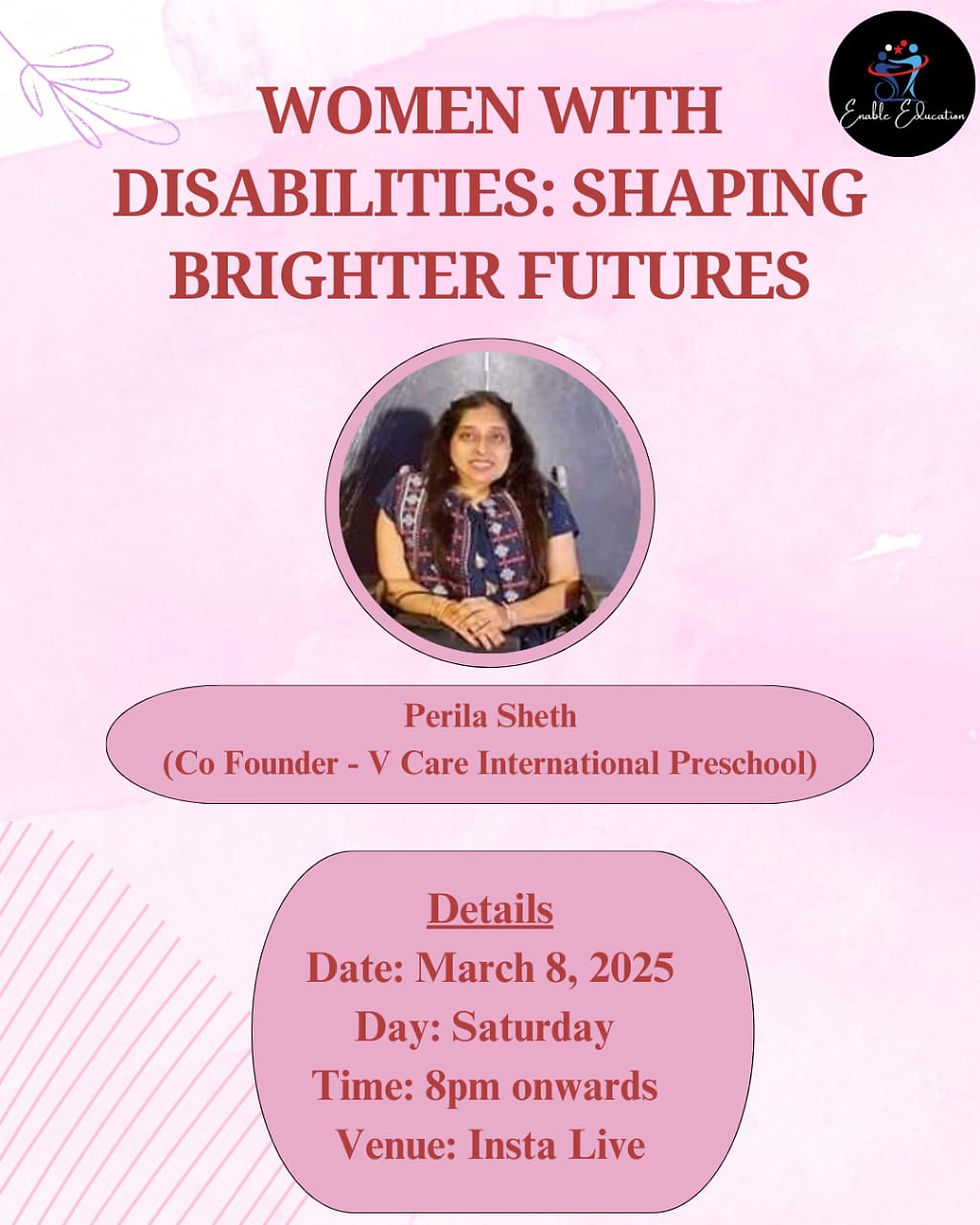Women with Disabilities: Shaping Brighter Future
- Aarushi Gambhir 15
- Mar 21, 2025
- 2 min read

Enable Education recently hosted an insightful Instagram Live session featuring Perila Sheth, a 48-year-old woman from Mumbai who was diagnosed with polio at an early age. As a result, she experienced waist-down paralysis along with scoliosis, which made walking impossible.
Perila attended an inclusive school where her teachers provided immense support, ensuring she was actively included in all activities. To accommodate her needs, her classes were moved to the ground floor, allowing her to participate in the learning process seamlessly.
However, her college experience was markedly different. She encountered significant accessibility challenges, including the absence of lifts and ramps, making it difficult to attend classes on the upper floors. Throughout her educational journey, her father played a pivotal role, ensuring she could access education despite infrastructural limitations. A firm believer in the power of education, he would personally pick and drop her from school and college, instilling in her the values of hard work, determination, and consistency—qualities further reinforced by her parents and sister.
During the session, Perila highlighted the lack of awareness regarding educational opportunities for children with disabilities. She emphasized that this lack of information remains a significant hurdle in their pursuit of education. Unlike today, where the internet facilitates access to educational content, she faced difficulties due to the absence of digital resources and accessible libraries.
Beyond education, she also discussed the limited access to job opportunities and personal networks, which further hindered the professional growth of people with disabilities. These challenges are compounded by infrastructural, accessibility, and societal barriers that restrict their entry into both education and employment sectors.
She is the Co. Founder of V care International Preschool, which rests on the foundations of inclusive education. She wanted to impart her knowledge and value systems to more students and hence decided to start a preschool. She wanted to take children away from the increasingly digitised world to one where they set into their roots.
Perila underscored the importance of self-reliance and proactive problem-solving for individuals with disabilities. She advocated for vocational training and upskilling programs to empower them with financial independence. Moreover, she stressed the urgent need for inclusive policies and improved infrastructure to create equal opportunities for people with disabilities in both education and employment.
The session concluded with a call to action for society to work towards a more inclusive and accessible environment, ensuring that individuals with disabilities can lead independent and fulfilling lives.





Comments